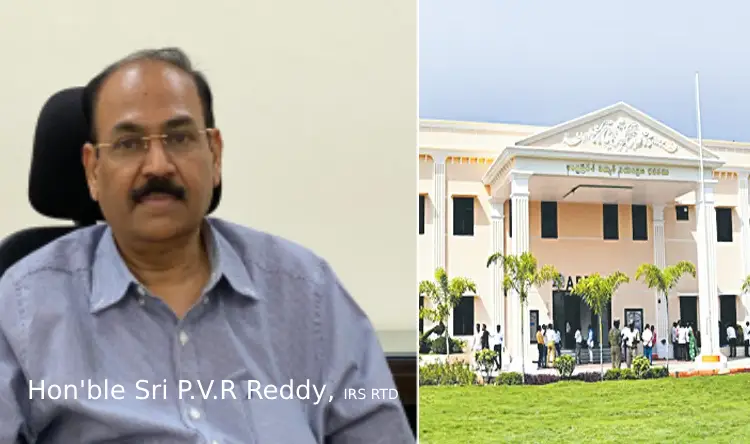Precedent No. JB 2025 APERC OP 91
The APERC Headed by Hon’ble Sir P.V.R. Reddy, Member & Chairman (i/c) in his Orders in O.P. No. 91 of 2024 in between Southern Power Distribution Company of Andhra Pradesh Limited v. Axis Energy Ventures India Private Limited & Ors., dated May 2, 2025 sets a precedent affirming the Andhra Pradesh Electricity Regulatory Commission’s (APERC) autonomy in approving Power Purchase Agreements (PPAs) and determining tariffs under Section 62 of the Electricity Act, 2003, treating state government directives under Section 108 as advisory. It validates MoU-based PPAs for renewable energy projects with high Capacity Utilization Factors (CUF) and storage, approves fixed 25-year tariffs comparable to competitive bids, and mandates flexible peak-hour definitions and strict penalties to balance consumer and developer interests, while emphasizing the binding nature of Ministry of Power’s Renewable Purchase Obligation targets under the Energy Conservation Act, 2001, for evidence-based power procurement.
Key Facts
- Subject: Approval of four amended Power Purchase Agreements (PPAs) under
Section 86(1)(b) of the Electricity Act, 2003, and Section 21 of the Andhra
Pradesh Electricity Reform Act, 1998, for procuring 400 MW (100 MW each)
from wind-solar hybrid pilot projects under the Bundling, Balancing, and
Banking (BBB) scheme. - Government Directive: The Government of Andhra Pradesh (GoAP) issued a
directive under Section 108 of the Electricity Act, 2003, on September 24, 2024,
urging APERC to approve the PPAs to honour prior commitments and support
the state’s renewable energy goals. - Objections: Stakeholders raised concerns about the non-competitive MoU route,
high tariffs, regulatory independence, outdated policies, and the necessity of the
power procured. - Project Details: The projects aim for a 60% Capacity Utilization Factor (CUF),
incorporate energy storage for peak-hour supply, and align with Andhra
Pradesh’s 72.60 GW renewable energy target by 2030 and India’s 500 GW
renewable energy goal.
Key Issues
- Legality and Binding Nature of GoAP’s Directive: Whether the GoAP’s
directive under Section 108 of the Electricity Act, 2003, is binding on APERC
or constitutes an overreach into its regulatory domain. - Validity of Outdated Policies and Agreements: Whether the 2018 MoU, 2019
Scheme Implementation Agreement (SIA), and 2019 Wind-Solar Hybrid Policy
remain relevant given the 2024 Andhra Pradesh Integrated Clean Energy Policy. - Necessity of Power Procurement: Whether the 400 MW from the proposed
projects is necessary, considering load forecasts, Renewable Purchase Obligation
(RPO) targets, and potential grid management issues. - Appropriateness of Procurement Route: Whether the MoU-based PPA route,
using the Average Pooled Purchase Cost (APPC) tariff, is legally and
economically justified compared to competitive bidding. - PPA Amendments: Whether the PPAs require amendments to address
stakeholder concerns, such as peak-hour definitions and storage provisions. - Tariff Determination: Whether the proposed fixed tariff of Rs. 4.60/kWh for 25
years is just and appropriate compared to competitive bidding rates and other
renewable energy projects.
Legal Principles and Findings - Regulatory Independence and Section 108 Directives:
o Principle: Section 108 of the Electricity Act, 2003, allows the state
government to issue policy directives, but these are advisory, not binding,
on State Electricity Regulatory Commissions (SERCs). SERCs retain
statutory independence to evaluate PPAs and determine tariffs based on
regulatory principles and consumer interests.
o Finding: APERC acknowledged the GoAP’s directive as valuable
guidance but emphasized its duty to independently assess the PPAs on
merits, ensuring no precedent for undue governmental influence (Para
14). The Commission clarified that its decision is case-specific and does
not obligate future approvals based solely on government directives (Para
34). - Validity of Prior Agreements:
o Principle: Agreements executed under valid policies at the time of
signing remain enforceable, even if subsequent policies supersede earlier
ones, unless explicitly invalidated. Court commitments, such as those in
affidavits, further reinforce their enforceability.
o Finding: The 2018 MoU, 2019 SIA, and 2019 Wind-Solar Hybrid Policy
were valid when executed. The 2024 Integrated Clean Energy Policy
allows migration but does not invalidate prior agreements. APERC noted
GoAP’s High Court commitment in WP No. 9680 of 2021 to honour such
agreements, but it assessed the PPAs independently (Para 15, 35). - Need for Power Procurement:
o Principle: Power procurement must align with load forecasts, RPO
targets, and grid stability requirements. Renewable energy with storage
enhances grid reliability and supports national and state renewable energy
goals.
o Finding: APERC confirmed the need for the 400 MW based on projected
energy shortages during peak hours (FY 2027-28 onwards), RPO
shortfalls (12,619 MU by FY 2029-30), and MoP’s binding RPO targets
under the Energy Conservation Act, 2001 (29.91% to 43.33% by FY
2029-30). The projects’ high CUF and storage capabilities address
intermittency, justifying their necessity (Para 16, 36). - PPA vs. Competitive Bidding:
o Principle: Sections 62 and 63 of the Electricity Act, 2003, provide
alternative tariff determination methods. Competitive bidding is not
mandatory for renewable energy projects if PPAs are approved under
Section 62 and relevant regulations. Long-term PPAs ensure price
stability and project viability.
o Finding: APERC upheld the MoU-based PPA route under Regulation 5
of 2022, which permits APPC-based tariffs for renewable energy projects.
The Supreme Court’s ruling in CA No. 1933 of 2022 supports Section 62
as a valid alternative to Section 63. The fixed 25-year tariff and high CUF
outweigh competitive bidding concerns, with deviations justified under
Clause 10.2 ofEdit: Regulation 5 of 2022 (Para 17, 38-40). - PPA Amendments:
o Principle: PPAs must include clear provisions for storage, peak-hour
supply, and flexibility to adapt to changing grid dynamics, ensuring
consumer protection and operational efficiency.
o Finding: APERC directed amendments to include a flexible peak-hour
definition (5 AM–9 AM, 7 PM–11 PM, subject to APSLDC and APERC
approval) and confirmed provisions for early payment rebates (2% for
LC, 1% otherwise) and energy storage commitments by AEVIPL (Para
19, 43). - Tariff Determination:
o Principle: Tariffs must balance developer viability and consumer
interests, considering project-specific benefits like high CUF, storage, and
exemption from Inter-State Transmission System (ISTS) charges.
o Finding: The fixed tariff of Rs. 4.60/kWh for 25 years was approved as
it is lower than the current APPC (Rs. 5.12/kWh), comparable to FDRE
bid tariffs (Rs. 4.64–4.89/kWh plus ISTS charges), and offers stability
against future APPC increases. Additional benefits include 50:50 REC
sharing and stringent penalties for CUF and peak-hour shortfalls (Para 20,
21, 45).
Decision
- Approval: APERC approved the four PPAs for 400 MW wind-solar hybrid
projects, subject to amendments regarding peak-hour definitions and tariff
conditions. - Tariff: Fixed tariff of Rs. 4.60/kWh for 25 years, with deemed banked energy
provisions for pre-COD energy at 50% of the annual APPC rate or third-party
sale options. - Amendments: APSPDCL to submit amended PPAs within 30 days,
incorporating flexible peak-hour definitions and confirming storage and rebate
provisions.
Precedential Scope - Regulatory Independence: Reinforces SERCs’ autonomy in tariff
determination and PPA approvals, treating Section 108 directives as advisory. - PPA Route: Validates MoU-based PPAs under Section 62 for renewable energy
projects when aligned with regulations, especially in the absence of competitive
bidding guidelines. - Tariff Stability: Supports fixed long-term tariffs for renewable energy projects
to ensure price stability and project bankability, particularly for high-CUF
projects with storage. - RPO Compliance: Emphasizes the binding nature of MoP’s RPO targets under
the Energy Conservation Act, 2001, and the role of hybrid projects in meeting
them. - Consumer Protection: Mandates strict penalties and equitable benefit-sharing
(e.g., RECs) to safeguard consumer interests in renewable energy PPAs.














